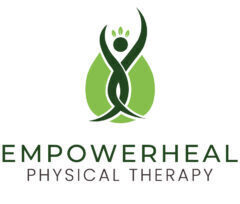Kegels and Pelvic Floor Therapy: When They Help—and When They Don't
If you're dealing with pelvic floor issues, chances are you've heard of Kegel exercises. They're often promoted as the go-to fix for everything from urinary leakage to prolapse. But are Kegels really right for everyone? In this guide, we’ll explore:
- When Kegels are recommended
- When Kegels should be avoided
- The importance of individualized pelvic floor therapy
What Are Kegel Exercises?
Kegels are exercises that involve tightening and releasing the pelvic floor muscles—similar to the action used to stop the flow of urine. These exercises are intended to strengthen muscles that support the bladder, uterus, and bowels.
When Kegels Are Recommended
Kegels can be very effective when your pelvic floor muscles are underactive or weak. They are typically recommended for:
- Stress urinary incontinence (leakage with coughing, sneezing, laughing)
- Mild pelvic organ prolapse
- Aging-related pelvic floor weakness
- After certain pelvic surgeries, with professional guidance
When Kegels Are NOT Recommended
Surprisingly, Kegels can actually worsen symptoms if your pelvic floor is already tight, tense, or overactive. Avoid Kegels if you have:
- Pelvic pain or tightness
- Vaginismus or pain during sex
- Constipation due to muscle tension
- Frequent urination
- Tailbone or low back pain linked to tight pelvic floor muscles
Doing strengthening exercises on already-tight muscles is like doing bicep curls on a cramped arm—it only makes the problem worse.
The Importance of the Right Pelvic Floor Therapy
Not all pelvic floor issues are caused by weakness. Some come from muscle tightness, poor coordination, or imbalances. That’s why working with a pelvic floor physical therapist is essential.
After a full evaluation, your therapist may recommend:
- Kegels for weak muscles
- Reverse Kegels or stretching for tight muscles
- Manual therapy
- Core and posture training
- Breathwork to support pelvic floor relaxation
This individualized approach leads to better results and fewer setbacks.
Bottom Line: Kegels Aren’t for Everyone
While Kegels are a powerful tool in pelvic floor rehab, they are not a universal solution. If you’re experiencing pain, leaking, or pressure, don’t guess—get assessed.
Partnering with a skilled pelvic floor therapist can help you:
- Identify the root cause of your symptoms
- Get the right treatment plan
- Recover faster and with fewer relapses

